Club of Amsterdam

Supporter
The Chamber of Commerce for Amsterdam
Germany has been Holland’s neighbour longer then we can imagine. As a small country balancing on the edge of a continent we are poised between a landmass and the sea. That has always been our position and we have been able to make the best of it by becoming a trading nation. Traders cannot afford enemies and so we also balanced our relations with the surrounding nations. Germany is out biggest neighbour and one of our most important trading partners. When it pours in Germany it rains in the Netherlands. The ties between the two countries have always been very close. German 19th century authors went on holiday in Zandvoort and rich Dutch went to Berlin.
German was taught at most schools and German philosophers were all the rage. Obviously the Second World War has made a breach in the relation between the two nations. Yet we are still connected on many levels: economically, culturally and linguistically. After 1945 the Dutch have set their course west and looked to the other side of the ocean for guidance and inspiration. Maybe it is time that we looked east and take some examples from the German rule book to learn from their amazing success.
Concept: Peter van Gorsel, Educational Business Developer, University of Amsterdam / UvA/HvA
![]() Hanco Jürgens, Researcher, Teacher, Institute for German Studies at the University of Amsterdam
Hanco Jürgens, Researcher, Teacher, Institute for German Studies at the University of Amsterdam
The German model: From sick patient to the leading political economy of Europe
Around the turn of the twenty-first century, Germany was considered the sick patient of Europe: Wages were too high, the labour market was not flexible enough, and the welfare state was a leaden burden. Today, Germany is the leading political economy of Europe. One of the explanations for this revival is the way Germany conceives its own future. The many debates about the future challenges of the federal republic has led to a sober and sensible policy, with an eye for checks and balances, and for the threats of a shrinking labour force in a globalizing world. We should learn from the way Germany discusses its future problems.
![]() Frans Vogelaar, Professor, Academy of Media Arts Cologne, Founder, Hybrid Space Lab, Berlin
Frans Vogelaar, Professor, Academy of Media Arts Cologne, Founder, Hybrid Space Lab, Berlin
InertInnovation
Germany viewed from the west, has for long been considered as dull, inert and tardy. This inertness is not only a handicap – but also proving a strong point. With its conservative policy Germany has – against all advises – kept up industrial production. With a tradition in long term investment in excellence it faces today new challenges such as innovation in green technologies. And Berlin is becoming the cultural hotspot.
![]() Huib Wursten, Senior Partner, ITIM International
Huib Wursten, Senior Partner, ITIM International
How to manage the Germans
19:00 – 20:00
Introduction by our Moderator
![]() Peter van Gorsel, Educational Business Developer, University of Amsterdam / UvA/HvA
Peter van Gorsel, Educational Business Developer, University of Amsterdam / UvA/HvA
Welcome by Age Fluitman, Chairman at Chamber of Commerce Amsterdam
Part I:
![]() Hanco Jürgens, Researcher, Teacher, Institute for German Studies at the University of Amsterdam
Hanco Jürgens, Researcher, Teacher, Institute for German Studies at the University of Amsterdam
The German model: From sick patient to the leading political economy of Europe
![]() Frans Vogelaar, Professor, Academy of Media Arts Cologne, Founder, Hybrid Space Lab, Berlin
Frans Vogelaar, Professor, Academy of Media Arts Cologne, Founder, Hybrid Space Lab, Berlin
InertInnovation
![]() Huib Wursten, Senior Partner, ITIM International
Huib Wursten, Senior Partner, ITIM International
How to manage the Germans
20:00 – 20:30
Coffee break with drinks and snacks.
20:30 – 21:15
Part II:
Open discussion

Hanco Jürgens
Researcher, Teacher, Institute for German Studies at the University of Amsterdam
Hanco Jürgens is a researcher, teacher and member of staff at the Institute for German Studies at the University of Amsterdam. He specializes in the history of the Twentieth and the Eighteenth Century. With a grant of the Montesquieu Institute he researches the influence of the European integration on the social, economic, constitutional and political relations in Germany and the Netherlands. He lectures on Germany and Europe and has published on a wide variety of subjects. His publications include studies of the concepts of the Enlightenment, the history of the Dutch border, and the life and politics of Angela Merkel.
www.duitslandinstituut.nl
www.duitslandweb.nl

Frans Vogelaar
Professor, Academy of Media Arts Cologne, Founder, Hybrid Space Lab, Berlin
Hybrid Design esplores new areas in Design that emerge from the combination and fusion from environments, objects and services, within their network of production, distribution, usage and recycling, in context of the era of communication.
Prof. Frans Vogelaar founded in 1998 at the Academy of Media Arts Cologne in Germany the first Department of Hybrid Space worldwide.
Prof. Frans Vogelaar is also founder of Hybrid Space Lab, a r&d and design practice focusing on the hybrid fields that are emerging through the combination and fusion of environments, objects and services in the information-communication age. The scope of his research, development and design projects ranges from those on urban games and urban planning to buildings, architectural interiors and industrial design applications and wearables.
www.khm.de
www.hybridspacelab.net

Huib Wursten
Senior Partner, ITIM International
Huib is experienced in translating international and global strategies and policies into practical consequences for management. He has been working in this field since 1989 with a variety of Fortune 1000 companies, with public and private organisations in 85 countries on all continents. His main clients in the business sector are IBM, 3M, Vodafone, McCain, Quest, Texaco, ABN AMRO, Nike, and Unilever. Non-profit clients include the IMF, the European Central Bank, the World Bank, the UN Development Programme, the Council of Europe, and the Dutch peacekeeping forces.
www.itim.org

Peter C. van Gorsel
Educational Business Developer, University of Amsterdam / UvA/HvA
Peter van Gorsel spent many years in publishing before becoming Director of the Institute for Media and Information Management at the Hogeschool van Amsterdam. Since October 2010 he started his new assignment as Educational Business Developer, University of Amsterdam / UvA/HvA.
www.uva.nl
| Impressions
|

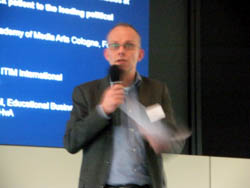
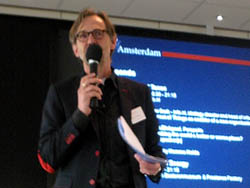
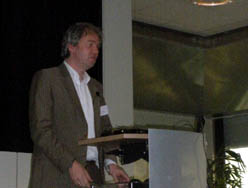
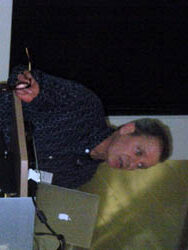
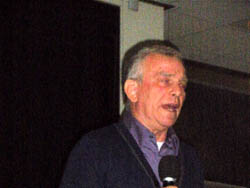
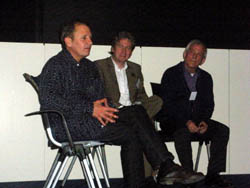
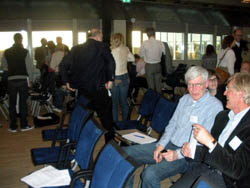
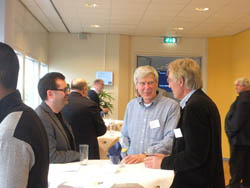
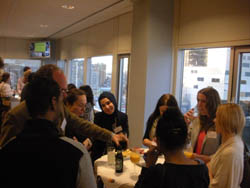
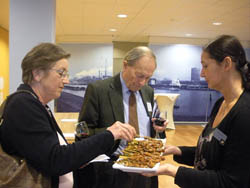
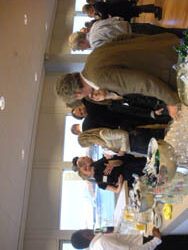
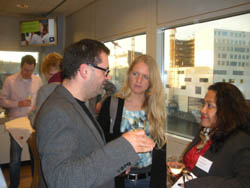


Customer Reviews
Thanks for submitting your comment!